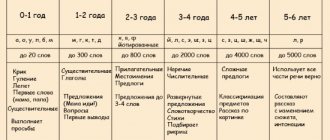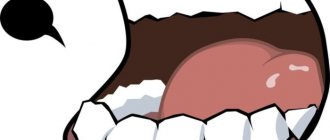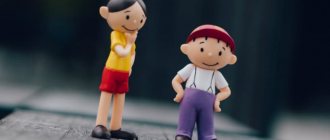Among the back-lingual phonemes, the articulatory structure of the sound [K] is considered basic. Automation of [K] in syllables and syllables, in coherent speech is impossible without mastery of correct articulation.
When playing [K] and [G], the lips open slightly and remain in a neutral position. The teeth are slightly open. The tip of the tongue is located at the lower incisors. The front and middle parts of the back are freely lowered, the back part rests against the soft palate, which, rising, is pressed against the posterior pharyngeal wall. The sides slightly touch the back of the hard palate. The air flow breaks through the closure between the back of the lingual dorsum and the soft palate.
When articulating [K], the vocal cords relax and move apart, the voice is not involved. When articulating [G], they combine to create a voice. Sound [K] - consonant, hard, dull. The sound [G] is consonant, hard, sonorous.
Any deviation from the articulatory position described above that does not result in a defective sound is not considered an abnormality.
Violation of the pronunciation of the sound [K] is called kappacism. Replacing it with another sound, often with [T] or [X], is called paracappacism. Defective pronunciation of the sound [G] is called gammacism. Replacing [G] with the phoneme [D] is called paragammatism. The most common violation of the pronunciation of these phonemes is their elision (omission).
If the reproduction of phonemes is defective, work on their production is required. To correct [K], the speech therapist gives the task to bend the tongue into a mound, press it firmly to the palate and blow away a light object lying on the hand near the child’s mouth. The sound [K] is heard. By repeating an action many times, you can automate the articulatory position of the sound.
Another technique for setting [K] is to induce a slight cough. To set [G], a tactile vibration technique from the reference phoneme [K] is used. One of the child’s hands is on the speech therapist’s larynx, and the other is on his own. The child says [K] and notes that the vocal folds do not vibrate during articulation. Next, the child is asked to connect his voice and say [K] loudly. You should hear [K].
Structure of a lesson on automating sounds [K] and [G]
After setting the phonemes [K] and [G], it is necessary to begin their automation. Classes for each sound are conducted separately. The first to automate is [K], and after entering it into coherent speech, they move on to automating [G].
Each lesson is focused on the implementation of several groups of tasks.
Educational:
- Clarification of ideas about the method of reproducing an automated phoneme separately, in syllables, phrases, independent speech.
- Introducing the terms sound, syllable, word, sentence.
- Teaching basic reading skills.
- Increasing vocabulary on a specific lexical topic.
Educational:
- Improving the motor activity of the speech organs.
- Formation of sensory perception of articulatory position.
- Improving phonemic processes.
- Developing the ability to perform sound-letter analysis using graphic images.
- Improving non-speech mental processes.
Educational:
- Stimulating interest in the activity.
- Developing perseverance, determination, and an adequate attitude towards one’s speech disorders.
Corrective:
- Correction of incorrect position of automated sound.
- Elimination of speech negativism.
Progress of the lesson on automation of sounds [K] and [G]
The lesson must be carried out using a mirror. You need to start with an analysis of the articulation of the phoneme. They use a variety of visual aids: picture plan, speech therapy profile, hand model, dummies. The child examines the position of the participating organs of the speech apparatus and determines the nature of the air flow. After analyzing the articulation, you need to characterize the phoneme according to the following plan: vowel/consonant (is there an obstacle to the exhaled air flow), voiceless/voiced (is the voice involved), hard/soft (is there an additional rise in the middle part of the lingual back).
Next, the pronunciation of the sound is practiced. Explosive [K] and [G] are worked on with a quick exhalation. For reinforcement, games with elements of onomatopoeia (what the sound is like) are used. Then you need to introduce the child to the letter indicating the phoneme [K] or [G]. Each time the child comes to the conclusion that the sound is heard and pronounced, and the letter can be seen, read, and written. Finds objects in the surrounding reality that are similar in appearance to a letter. If necessary, correct spelling is practiced. Non-graphic and graphic exercises are used, aimed at developing the skill of correctly depicting a letter.
After becoming familiar with the letter, they begin to improve phonemic processes. The child learns to isolate a sound from a number of phonemes that are similar in acoustic-articulatory characteristics, from a stream of syllables, from a list of words (the teacher compiles a set of words on the corresponding topic), and determines the presence and position of an automated sound in a word. If the level of speech development is insufficient, phonemes that are distant in their acoustic-articulatory characteristics are offered.
Next, the phoneme is fixed in syllables. The child repeats after the adult, pronounces in parallel with him and himself lists the syllables with the assigned phoneme. According to this principle, forward and backward syllables, as well as with a combination of consonants, are fixed. The voiced phoneme [G] is not fixed on the material of reverse syllables due to its deafening.
When the phoneme is accurately reproduced separately, you can move on to working on it in words. It is important to carry out only after isolated fastening. Words are selected by a speech therapist taking into account the lexical topic of each lesson. The child pronounces the word and indicates the place of the phoneme in it. Older preschoolers do a sound-syllable analysis with a graphic diagram of one word according to plan: the first and last sound are highlighted, the number of vowels and consonants is counted, all sounds are named one by one. Under each letter a colored chip is placed to indicate the sound.
Automation of the sound [G] in words ending in [G] is not carried out due to deafening.
Then they practice the correct sound in the phrase. The child constructs sentences with the words he has learned. Older preschoolers analyze the sentence: explain the definition; voice the basic rules of writing, establish the order of words, and count their number. A sound-syllable analysis of each word is performed separately. When practicing phonemes in a phrase, pure tongue twisters and tongue twisters are used, selected according to the lexical topic. Tongue twisters are great for the most successful reinforcement of phonemes. In addition, with the help of tongue twisters you can practice clear, precise diction.
At the final stage of automation of any phoneme, one should begin to consolidate it in coherent speech. The text is selected according to the child’s age, taking into account the lexical topic. The child is offered a text of 5-6 sentences, rich in words with the sound being studied. It is advisable to use excerpts from fairy tales, stories, and children's poems. The speech therapist or child reads the text, then selects words with an automated sound from the composition.
The structure of each automation lesson includes one or two dynamic breaks. Their time and place are determined taking into account the child’s condition and the degree of his fatigue. At the end of each lesson, the child receives homework. After automating the sound [K] in the text, automation [G] is carried out in a similar manner. Automation of the sound [Кь] and [Гь] is similar. The final stage of work on these phonemes is their differentiation.
Didactic exercises for automating the sounds [K] and [G]
Phonemes should be automated in play activities using a variety of visual aids. For each sound position in a word, about thirty images should be selected. For complete successful automation, show the child a card index of about a hundred pictures.
Effective results can only be achieved if classes are emotionally positive. The child should not just look at and name the objects depicted in the pictures, but play.
It is imperative to take into account words that are rarely used in everyday life. The meaning of new words must be explained in a language that is simple and understandable to the child, taking into account his individual and age characteristics.
Sample exercises:
- Together with an adult and independently name what is shown in the picture.
- Listen to how many times the adult repeated the sound and say one more. You can pronounce syllables and words in the same way.
- Remember what is drawn and reproduce from memory. Gradually the number of images increases.
- Divide words into syllables.
- Determine the stressed syllable.
- Select images with the required number of sounds and name them.
- Determine what place the automated phoneme occupies in words, select images with a sound that occupies a certain position in the word.
- Make a sound-syllable analysis of words.
- Change nouns by case.
- Count objects with an automated phoneme in forward and reverse order.
- Select nouns for the pronouns my, mine, mine, mine, and pronounce the resulting phrases.
- Select adjectives for nouns, pronounce phrases.
- Finish the phrase started by an adult using the sound being studied.
- Match verbs to nouns and pronounce the resulting phrases.
- Form nouns with diminutive suffixes.
- Form relative adjectives.
- Compose stories based on plot pictures using leading questions, supporting words, and a given beginning or ending.
- Come up with questions for images, texts, and answer them.
Games for automating the sounds [K] and [G]
The fourth one is extra. The child looks at four pictures. Three of them depict objects with an automated phoneme, one does not. The child names pictures, clearly articulates the assigned phoneme, and names an object that does not have a given sound. You can search for images where the location of the phoneme is different.
Suitable - not suitable . Look at the picture of the refrigerator, clarify its purpose, and list what can be stored in it. By looking at object pictures with a fixed phoneme, decide whether it is possible or not to store this object in the refrigerator.
Box. Show the child the doll, tell him that the doll likes to look at pictures and put them in a box. Ask the doll to look at its pictures together and name them, clearly articulating the desired sound. Magic colors. Draw an open box of paints on a piece of thick paper. Place stacks of colored mugs with pictures on the back on top of the paints. Explain that these are magical colors in which the pictures are hidden. The child’s task is to find and name them.
Lunch for a gnome . Look at the image of a plump gnome. Speculate why he is plump. Offer to come up with what he likes to eat. Words must have an automated sound. You can draw a skinny gnome and offer to feed him.
Word combinations and phrases starting with the sound G
Phrases starting with the G sound at the beginning of a word in monosyllabic words.
This is gas, turn off the gas, the gas is burning, this is a racket, a nasty bastard, this is fumes.
Hungry guest, visiting guest, Gosha guest, all year round, nasty year, this is a gop, this is a hump, a bare hump, Gosha is proud, this is a goal, a handful of goji, mountain golf, a loud gong, a gong is buzzing, a good bugle, a loud hum, a goose cackling .
Where is the tiger, where is the gnome, proud gnome, bitter mushroom, rotten mushroom, nasty grim, gnome makeup, loud thunder, mountain hail, proud count, hungry vulture, hungry rook, touch the eye, drive the load, load the dirt, warm the chest, scold the flu , rude black man, bitter milk, the bunch is burning, drive a nail, bend a nail, where is the wilderness.
Phrases with the sound G at the beginning, in the middle of a word in 2 complex words with an open syllable.
Where is the mountain, the eider cackles, drives Gosha, chase Gosha, scare Gosha, Gosha goo, no Gosha, Goga chases, deep grief, Gali’s grief, Gale forever, the geese cackled, no grief, proud Goths, thick thicket, Gali’s lip, Gulya gugu , chase guppies, scare guppies, no guppies, leg hurts, touch horns, thick horns, Goshino Lego, blue agate, pigeon pull, dense meadows, Meadows city, loud scales.
Phrases with the sound G at the beginning, in the middle of a word in 3 complex words with an open syllable.
City newspaper, stupid head, nasty viper, bitter biscuit, playful loon, mountain viper, humpback gorilla.
The goose cackles, the reveler plays, the reveler walks.
Driving a cart, corrugated paper, stupid scarecrow, mountainous road, good road, fading rainbow, burning rainbow, mountain berry, sponge lamprey, bitter agave, bitter cigar.
Gloomy weather, guessing the weather, main shoulder straps, city chase, Gosha's matting, tight matting, touching the paper.
Round figure, jumping frog, blue lagoon, round curlers.
Collocations with the sound G at the beginning, in the middle of a word in 2 complex words with an open syllable, with a confluence in the middle of the word.
Shy jackdaw, jackdaws make noise, stupid Nut, chase the jackdaw, smooth pebble, giant pebble, touch the pebble, touch the corrugation.
Smooth slide, hot slide, garage race, city race, main race, sore throat, hot corrugations, bitter drink, main guest, handful of goji, goji berries.
Blue sponge, city revelry, playful revelry, mustard gusli, Gosha's gusli, it was thick.
Blue book, main book, moving the book, no book, proud yoga, yoga is hungry, yoga is grieving, a lot of berries, a lot of moisture, city blizzard, no blizzard, smooth sword, no sword, Gosha's sword.
Phrases with the sound G at the beginning, in the middle of a word in 2 complex words with a closed syllable.
Goshin lawn, clay lawn, garden lawn, aerated concrete garage, city garage, my garage, Goshin garage, gallop of a hound, mustard hammock, spongy peas, frightened gazelle, city messenger, frightened messenger, blue haven, a lot of guessing, chasing pigeons, burning with fire , extinguish fire, garage guarantor.
City of citizens, one year old naked, one year old Gosha, hunger of the mountaineers, hunger of the pigeons, loud voice, loud voice, hungry dove, mountaineer of the mountains, city talk, cackle of the loons, naked Gosha, hubbub of the pigeons, grief of the goji, bitterness of the pink salmon.
Starving hussar, blue gouache, hot goulash, loud gander, loud honk, horn honk, walk for a long time, ruin the harbor.
A blue carriage, a buzzing carriage, other luggage, a runaway rich man, a mountain tan, a vociferous pegasus, an ugly scarecrow playing a gypsy, scolding a giant, pulling a cart, scaring a pigeon, scaring stoats, walking proudly, blinking an eye, corner of a garage, mountain coal.
Proud Egor, a fire is burning, a stolen gazelle, a hungry runner, hot cast iron, thick yogurt.
Phrases with the sound G at the beginning, in the middle of a word in 2 complex words with a consonant cluster in the middle with a closed syllable.
Hot side dish, loud bark, playful Gavrik, ugly pigeon, smooth harpoon, Gosha dumbbell, fire goes out, chief potter, proud hunchback, planed croaker, main hormone, hungry miner, bitter side dish, Gosha is visiting, clay pot.
Stupid racer, crimson hump, good granite, mountain gravel, hump back, proud hussar, bitter mulled wine. Playing guslar, thick yogurt, googly racer, hungry gourmet, booming sound, thick garnish, thick tar.
Touch the harp, burn the side dish, coarse twine, plan the croaker, move the magnet, another mushroom.
A rough magnet, a hungry mongoose, a playful penguin, a dirty lobster, a loud signal, a rich tycoon, a hot barbecue, a loud Mongol, another snowdrift, a saiga thundering, a highlander's cry, a deaf cellar, a blue raglan, a loud organ, a smooth bend, a deaf juggler.
Phrases with the sound G at the beginning, in the middle of words, in 3 complex words with an open syllable with a combination of consonants in the middle of the word.
Rough fortune teller, blue nut, naked galley, loud auk, main tour, rotten pink salmon, humpback pink salmon, bitter mustard, proud of awards, clay burner.
Smooth Pea, Hot Pea, Very Hungry, Hungry Hound, Blue Mountain, Bitter Blueberry, Gosha Goryushko, Proud Dove, Harmonica.
The main mystery, an ugly beast, turtle doves running, a team of gas workers, a traffic police flasher, a planed slingshot, a timid meadow, an ugly toadstool, clay corners, a mustard button.
Smooth needle, nasty weather, rich land, stroke lightly, blue frog, clay figurine.
A jumping kangaroo, hungry tiger cubs, a huge hailstone, the main border, meadow buckwheat, a burning grenade, a gypsy flint, the depth of the lakes, a long-awaited letter, a giant engraving, a blue fence, the main threat, a gorilla thug, an oriole walking.
Phrases with the sound G at the beginning, in the middle of a word in 3 complex words with a closed syllable.
Mountain ice, smooth peas, a walking Hawaiian, a hot side dish, a mountain bastard, a rude gas man, a gas cylinder, speak rudely, a newspaperman is running, reverberatingly gas, go hungry for a long time, a long-awaited fee, will grieve, burnt cabbage roll, three-headed Gorynych, fiery horizon, main town , flammable gas, loud sovereign, cook cabbage rolls, ready-made side dish, loud talker.
Giant Gulliver, ugly gander, hungry gosling, destroyer of geese, rich vegetable garden, burnt bagel, Hawaiian hurricane, burning light, talkative parrot, burning store, chief speech therapist, mountain tubercle, help the messenger, burnt cinder, loud reprimand, extort money, guess the riddle , richer Yegorka, gypsy booth, meadow peas, horned elk, dirty stoker.
A smooth cucumber, a clay pot, a hungry jaguar, viscous mulled wine, a mighty highlander.
Complex phrases with the sound G.
Hunger intelligently, thick tar, a caterpillar walks, chases pigeons, a gourmet is starving, bitter eggnog, stupid goblin, helps cook, head is buzzing, thick mud, megaphone in a metropolis, overtake a gnome, solve a puzzle, scare penguins, drive a cart, cook beef , main hospital, guess the book, the gazelle starts to move, buzz on the oboe, the gazelle buzzes, catch up with the penguins, a crowd of cyclists, catch up with the runners, overtake the runner, a booming city, drive away the cars, whittle a brand, drive a whip, a mighty hurricane, a deep galaxy, peas are bitter, scare with a revolver, scare parrots, please Agathon, echoing metropolis, main race, huge head, bent nut, car of guilders, bulky goblin, tadpole head, accordion playing, penguin with penguins, tadpole chasing, gnomes playing, stroking a leg, bent nail, thunder thunders, catch up with the years, sad gosling, help fence, hungry goblins, help extort, scared Ghana, bend the corner, Mongol at the barbecue, goslings have settled down, year of warranty, talker said, dirty garage, ready-made eggnog, bike thief, loud megaphone, an angry reprimand, a blue carnation, Gonzik reprimands, round peas, thunder rumbled, a mountain road, Gonzik warmed, a handful of clay, the Serpent-Gorynych cackled, a huge gong, a gas-polluted city, Gary swallowed, the grief of the maid, Gary threatened, the governess walked, Gromozeka was upset, bitter peas, Garfield a reveler, download the program, the guest spoke, the main spellings, they are preparing cyborgs, their feet are buzzing, Yaga was proud, her eyes are looking, they were preparing a vinaigrette, a deep goose dish, Magnit stores, a blizzard all around, an expensive store, a group tour, a catalog of cocked hats, lead the guard , finished toy, tight cocked hat, Glasha’s wardrobe, firebrand went out, sword in the shin, potter’s wheels, hook-nosed Gulliver, goblin puzzle, Gennady the guardsman.
3 word sentences.
The gasman turns off the gas. The gas is on fire. The hungry guest is eating. The guest is still visiting. Goshin is a guest gnome. Blizzard all year round. The gorilla has a hump. Gosha was proud. A loud gong sounds. The goose cackles loudly. A hungry tiger is chasing. Where is the blue gnome? Where is the proud gnome? Where is the bitter mushroom? Where is the rotten mushroom? Loud thunder roars. Mountain hail threatens. The proud count grimaces. The hungry vulture is circling. The rook is very hungry. Gosh, don't touch your eyes. Burn the bitter mushroom. The bunch burns with fire. Bend a nail with a nail puller. Where is the wilderness of wood grouse? There is moisture in the garage. Mongolian at the grill. Ready to race. Hungarians from Hungary. Grenadier in the mud. Harpoon in pink salmon. Governor in the gallery. There's a tie in the store. Polka dot tie. Plays the accordion. Curtain on the head. Jackdaw on the lawn. Drives out of the garden. Pies with cottage cheese. Run to the pasture. Dove in the upper room. Goose with goslings. Stymie. Cackling in the harbor. Fire on the shore. There are geese in the garden. . Galya has a jackdaw, guests are in the carriage, running into the taiga, a city in the mountains, running out onto the road, running out of the grocery store, Galya was chasing geese. The jackdaw has built a nest. This pear is rotten. Volgograd is a hero city. The general led the guard. The Hungarians traded vinaigrette. The dirty reptile threatened. the boa was ironed. The photographer was catching up with the penguins. Gonzik was heating toast. The lady was looking at the wardrobe. The little jackdaw scared Grisha. Garfield is the talking guest. The bay galloped. Pink salmon is a little bitter.
4 word sentences.
The guslar plays the gusli. To the taiga for berries. The hunchbacked dwarf grieved bitterly. The tadpole has a huge head. A tadpole is preparing to become a frog. The cart was loaded with paper. Viper under a rotten mushroom. The side dish for pink salmon is bitter. The racer is ready to race. The GAZelle was driven into the garage. The proud goose cackled loudly. The talkative guard of geese cackled. A little jackdaw was chattering in the dovecote. The GAZelle was driven into the garage. The merchant traded for tugriks. The answer to the riddle is the mountain gazelle. The serpent-Gorynych cackled for a long time. The sponge helps to collect moisture. Baba Yaga was proud of Gorynych. Gosha has a city newspaper. Ugly viper behind the gnome. A bitter biscuit on gas. A playful loon helps a great auk. The gorilla has blueberries. A cart is being moved at the garage. There's a stupid scarecrow in the garden. A stupid scarecrow scares the pigeons. Gosha has corrugated paper. Gosha touches the dirty paper. The round curlers have mysteriously disappeared.
5 word sentences. They said the warranty was for a year. My head is buzzing from the city noise. Grandma is a guesser, guess, guess the riddle. Loud singing helps disperse sadness. The rake hit Gonzik on the head. The hunchbacked gnome was preparing mushroom soup. The harmonica player played scales on the harmonica. Gavroche droned loudly on his oboe. Gosha plays the harmonica. The gnome Grisha overtakes the goblin Goga. The beater is tired of running to the pasture. The tycoon was heating pink salmon on the grill. There are many Magnit stores in the city. There is no tie in Glasha's wardrobe. The fire on the shore scared the parrots. Gosha burns the city newspaper. A bitter biscuit is heated on gas. A humpback gorilla mourns for a blueberry. Gosha drove the cart to the garage. Gosha heated the corrugated paper. The loon, like a fortune teller, guesses the weather. Dirty Gosha touches dirty paper. The frog had a round figure. The frog jumped onto the dirty garage.
Sentences of 6-7 words.
A goose with goslings was walking near the mountain. Aglaya and her governess were walking in the city park. The city is preparing for a tour of the main theater. The ugly viper is preparing to attack the gnome. Rude Gosha burns the city newspaper. The humpback gorilla threatens, is rude and swears. A stupid scarecrow scares pigeons and jackdaws. Baba Yaga's scarecrow scares the jackdaws in the garden. A gorilla treats other gorillas to mountain berries. Gosha hid the round curlers in the cast iron pot.
The article was prepared and compiled by Speech therapist Irina Petrovna. You can contact me about alalia correction classes via Skype.





